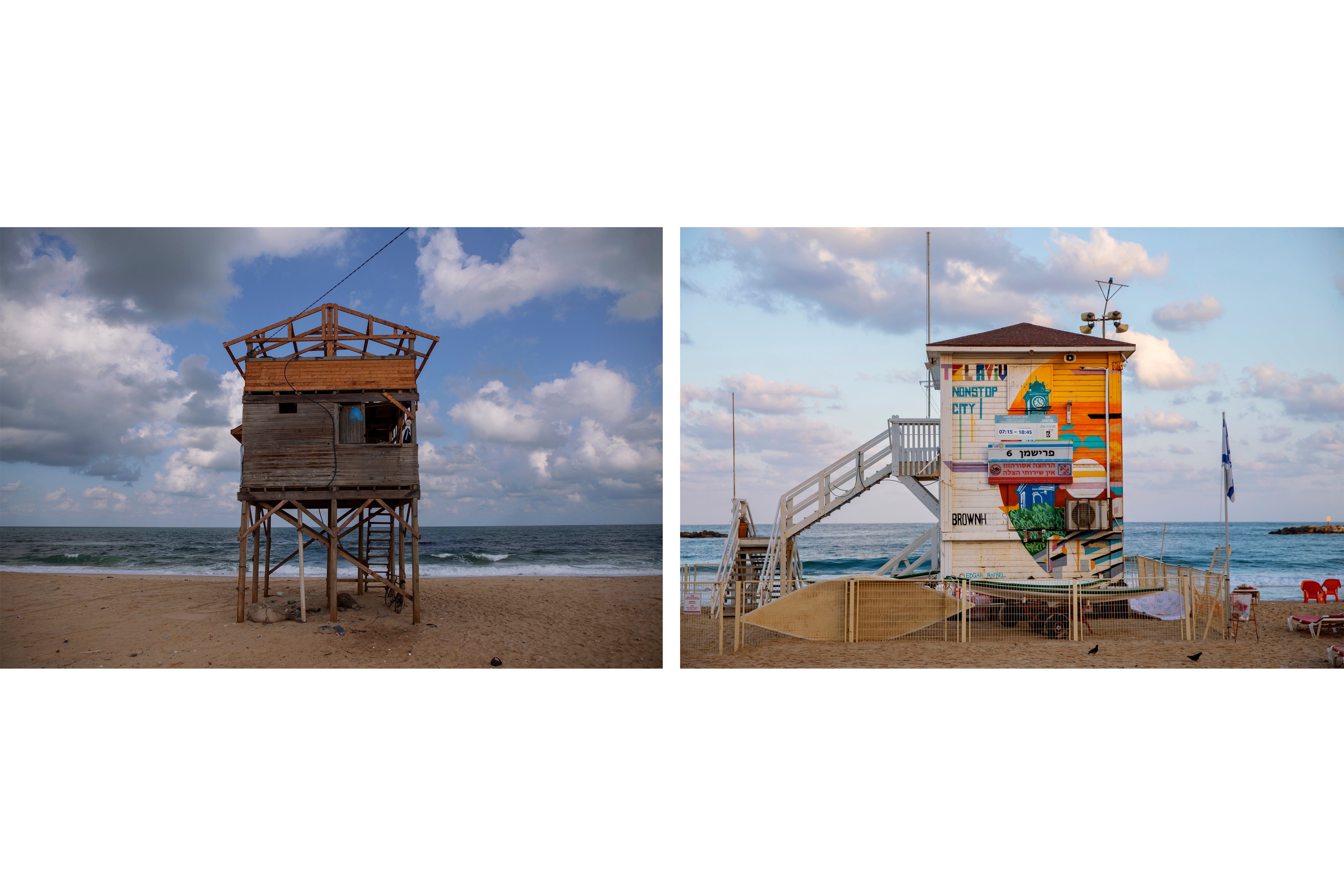AP PHOTOS: Summer days at the beach, in Israel and Gaza

Your support helps us to tell the story
From reproductive rights to climate change to Big Tech, The Independent is on the ground when the story is developing. Whether it's investigating the financials of Elon Musk's pro-Trump PAC or producing our latest documentary, 'The A Word', which shines a light on the American women fighting for reproductive rights, we know how important it is to parse out the facts from the messaging.
At such a critical moment in US history, we need reporters on the ground. Your donation allows us to keep sending journalists to speak to both sides of the story.
The Independent is trusted by Americans across the entire political spectrum. And unlike many other quality news outlets, we choose not to lock Americans out of our reporting and analysis with paywalls. We believe quality journalism should be available to everyone, paid for by those who can afford it.
Your support makes all the difference.Though the beaches in Tel Aviv and Gaza City look out on the same cresting waves of the Mediterranean Sea they are worlds apart -- and not just because they sit on opposite sides of a century-old conflict.
In Tel Aviv, Israelis wear bikinis, shorts and tank tops that show off their tattoos. Bottles of cold beer sweat under the sun as golden retrievers race after frisbees and surfers carry their boards out to the breakers. At first glance it looks like San Diego or Marseilles, a wealthy seaside metropolis where the Middle East and its various catastrophes can be comfortably ignored.
Gaza, just 70 kilometers (40 miles) away, is a crowded Palestinian enclave that has been cut off by an Israeli-Egyptian blockade since Hamas militants seized power in 2007. The beach is one of the only open spaces where families can breathe — a rare vista without fences or guard towers.
Oded Balilty, like most Israelis, has not been to Gaza since Israel withdrew its soldiers and settlers in 2005. Khalil Hamra, like most Palestinians from Gaza, has never been to Tel Aviv.
The two Pulitzer Prize-winning photographers have been covering the Israeli-Palestinian conflict for The Associated Press for two decades but have only met in person once, at a photo exhibition in Europe in 2003.
For this project, they communicated by Zoom and spent months taking pictures, sharing them, and then trying to find similar shots from the other side. After covering four Gaza wars from opposite sides of the battle lines, they tried to capture a shared reality.
“On the same day that I was standing with my feet in the water in Tel Aviv, Khalil was standing with his feet in the water in Gaza, and it was the same water,” Balilty said.
The differences were just as clear.
It took almost no time for Balilty to find an Israeli woman on the beach who was willing to have her picture taken — but Hamra said shooting a similar portrait in conservative Gaza was “a real challenge” that took months.
Hamra approached several women, explaining the project and asking if he could take their picture, only to be rebuffed by them or their husbands. A young woman finally agreed, but only on condition that she could see the pictures and help choose the best one.
Balilty described how the project made him feel as though he was “seeing Gaza through Khalil’s eyes.” Hamra was particularly moved by a set of nearly identical pictures from Tel Aviv and Gaza, each showing three young men in their teens or early 20s reclining on the beach.
Men that age in Israel are usually doing their compulsory military service. Men that age in Gaza often risk their lives in violent protests along the heavily guarded frontier. “But these guys, they were relaxing, they were swimming, they were having fun,” Hamra said.
Israel and Hamas have fought four wars since 2008, the most recent one in May. Rockets fired from Gaza crashed into Tel Aviv and set off air raid sirens across the city. Israeli airstrikes toppled multistory buildings in Gaza City and the navy shelled the coast.
The wars and the blockade have battered Gaza’s infrastructure. Untreated sewage has poured into the sea in recent years, polluting the coastline and drifting north into Israel.
Palestinians routinely refer to Gaza as an open-air prison for its 2 million residents, most of them the descendants of refugees from the 1948 war surrounding Israel’s creation. Israelis tend to view Gaza as a den of terrorists, whose rockets have been sowing fear in neighboring Israeli communities for more than a decade.
But a typical summer day at the beach reveals shared humanity.
Israeli boys and Palestinian boys can spend the whole day horsing around, scrambling up rocky jetties and plunging into the water again and again and again. Older boys try out parkour — urban gymnastics best attempted on soft sand. Israeli and Palestinian parents tenderly attach floats to their little ones, who squeal with glee each time the waves rush over their tiny toes.
Everyone basking in the same Mediterranean sun, watching the waves break off in the distance, savoring the long summer days while they last.